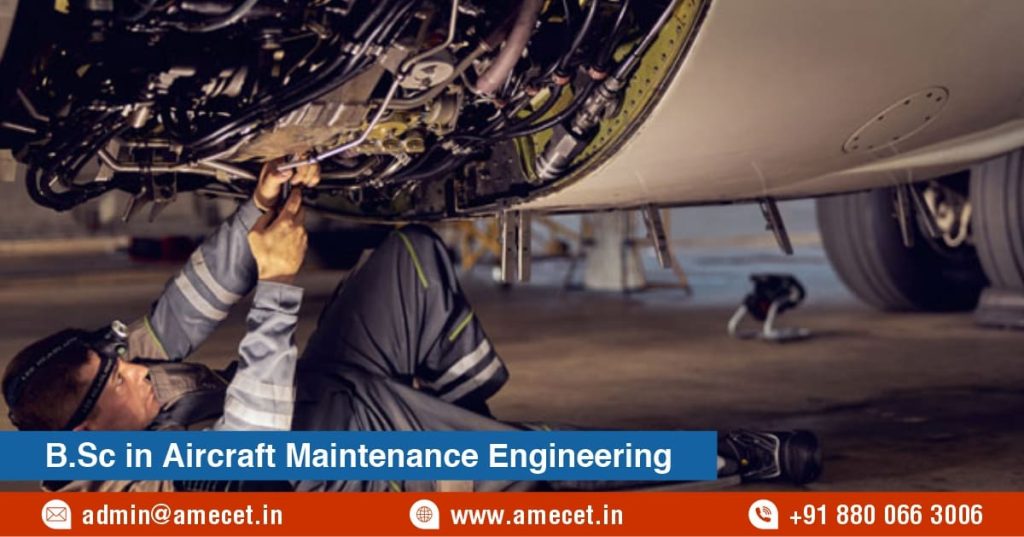What Are the Core Subjects in a B.Sc. in AME?
Posted on : 26 August, 2024 12:05 pm
In a B.Sc. in Aircraft Maintenance Engineering (AME), core subjects focus on building a strong foundation in aviation science and engineering. Students typically study topics such as aircraft systems, aerodynamics, avionics, propulsion systems, and materials science. The curriculum also includes courses in maintenance practices, safety protocols, and regulatory standards essential for ensuring aircraft airworthiness. Practical training in workshops and labs complements theoretical knowledge, allowing students to develop hands-on skills in aircraft inspection, troubleshooting, and repair, preparing them for a successful career in the aviation industry.
Aerodynamics
Aerodynamics is a fundamental subject in a B.Sc. in Aircraft Maintenance Engineering (AME) that focuses on the principles of airflow around aircraft structures. Students learn about lift, drag, thrust, and how these forces impact flight performance. Understanding aerodynamics is crucial for ensuring aircraft stability, efficiency, and safety during flight. The course covers topics such as airflow patterns, pressure distribution, wing design, and the effects of different atmospheric conditions on aircraft performance.
Key Points:
- Lift and drag forces
- Thrust and propulsion
- Airflow patterns
- Wing design principles
- Pressure distribution
- Stability and control
- Effects of altitude and weather
- Aircraft performance optimization
Aircraft Systems
Aircraft Systems is a critical subject in a B.Sc. in Aircraft Maintenance Engineering (AME) that covers the various mechanical, electrical, and hydraulic systems that ensure an aircraft’s functionality and safety. Students learn about power plants, fuel systems, electrical networks, avionics, landing gear, and environmental control systems. A deep understanding of these systems is essential for diagnosing issues, performing maintenance, and ensuring the overall reliability of an aircraft.
Key Points:
- Power plants and engines
- Fuel systems
- Electrical systems
- Avionics and instrumentation
- Landing gear mechanisms
- Hydraulic systems
- Environmental control systems
- Diagnostic and maintenance procedures
Avionics
Avionics is a vital subject in a B.Sc. in Aircraft Maintenance Engineering (AME), focusing on the electronic systems used in aircraft, including communication, navigation, and flight control systems. This subject teaches students how to maintain, troubleshoot, and repair complex avionics equipment, ensuring the safe and efficient operation of an aircraft. Proficiency in avionics is essential for AME professionals to keep pace with the technological advancements in modern aviation.
Key Points:
- Communication systems
- Navigation equipment
- Flight control systems
- Radar and weather systems
- Autopilot functions
- Instrument landing systems (ILS)
- Troubleshooting techniques
- Avionics software and firmware updates

